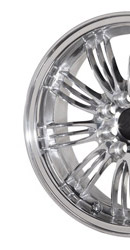 Have you ever thought about customizing your car so it better reflects your style? If you have considered it, or are planning to anytime soon, you will want to also consider the implications a souped up car might have on your car insurance, if any at all.
Have you ever thought about customizing your car so it better reflects your style? If you have considered it, or are planning to anytime soon, you will want to also consider the implications a souped up car might have on your car insurance, if any at all.
Is it worth customizing your car?
Common customizations include adding custom rims and tires, making engine modifications to boost power, re-doing the interior, window tinting, and getting a customized paint job. These changes can come with a hefty price tag.
Tricked out cars: How car modifications impact your car insurance
Car insurance rates are based on factory-built, off the line vehicles. Whenever you alter your vehicle from the original factory form, you must disclose the changes to your insurance company. Whether it's at the time the modifications are made, when renewing your policy, or getting new coverage, your insurer needs to know. If you do not disclose that your car has been modified, your insurance company may decline any future claims and may even cancel your policy. This could cost you more than any fancy new gadget and isn't worth the risk.
Souped up cars: Common car modifications
The following are a few common car modification scenarios and what you might expect when it comes to how they may affect your car insurance rate. Keep in mind, every insurance company has different rules regarding how they handle vehicle customizations and modifications, and the following limits and considerations may vary between insurers:
Car modifications under $1,500
Enhancements or upgrades done to your vehicle-with a combined value of less than $1500-such as a new stereo, window tinting, or new hub caps and rims need to be disclosed to your insurance company. After all, if they are unaware of improvements you've made to your vehicle, how can they cover the items should you ever need to submit a claim? These are common, popular upgrades and typically do not impact your car insurance premium.Non-performance enhancing modifications over $1,500
Costly enhancements or upgrades like high-end stereo systems, alloy wheels and rims, tinting, upholstery, and custom paint jobs will probably affect your insurance premium. While these types of expensive modifications do not affect the performance of your vehicle, they usually increase the value of your vehicle and make it more attractive to thieves.
Looking to buy a top of the line stereo? Before you buy it, it's worth knowing that most insurance companies limit the amount they will pay for upgraded stereo equipment in the event of a claim, at $1500.Performance enhancing modifications (aka souped up cars)
Modifications that improve a vehicle's performance typically make a car go above and beyond what it was designed to do. Modifications or add-ons like performance intakes, turbo kits, nitrous oxide systems, performance exhaust and mufflers, vehicle lowering, and rebuilt chassis (to name just a few) all alter a vehicle's performance. It alters it so much, that modifications like these mean that the car can no longer be rated the same as a non-modified factory-built stock version of the vehicle. If you make any of these types of changes, they're going to affect your car insurance rate and potentially your coverage.
Tricked out cars: Before you tweak your ride
Make sure you understand how much you could potentially end up paying if you choose to customize or modify your car. There is more to consider than just the cost of the upgrades, enhancements of modifications; there is also the impact it will have on your insurance. If you really want to personalize your wheels, it might be a good idea to stick to simple, non-performance enhancing modifications. Not only will you be able to personalize your vehicle so that it reflects your personality, but it may be cheaper to insure as well.




